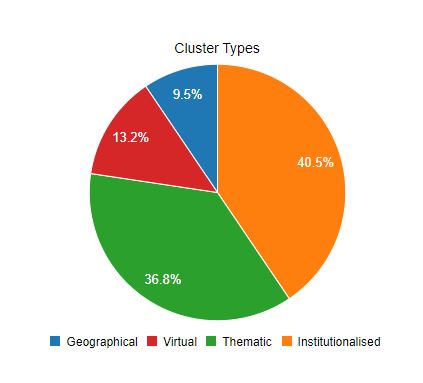A study carried out on Internet of Things (IoT) clusters in Europe provides a deeper understanding of dynamics, drivers and success factors in this area.
A human-centric IoT
fix-empty
The study on mapping IoT innovation clusters in Europe (.pdf) delivers a comprehensive mapping overview of the geographical areas of IoT innovation clusters operating within the EU, and their areas of specialisation.
The study targets the key IoT operating areas:
- smart living environment;
- smart farming and food security;
- wearables;
- smart cities and smart communities;
- smart mobility;
- smart environment and water management;
- smart manufacturing.
The study identifies 4 fundamental classes of clusters:

- Institutionalised clusters: associations of actors who work towards a common goal within an agreed formal or informal governance structure. A formal governance structure is a pre-requisite for any policy intervention concerning the cluster.
- Geographic clusters: clusters in the traditional Marshallian and Porterian concept, where sets of companies that act in a certain geographical area and possibly with a clear reference to IoT, or IoT start-ups in a certain city. They may have a structure and governance, or not.
- Virtual clusters: where different actors, which can be part of different thematic areas, collaborate in an action and towards a common goal without being co-located.
- Thematic clusters: clusters that deliver products, technologies or services related to ICT or the IoT independently of their location. The aggregation factor may be a specific technology, technological platforms, application and/or open source software projects.




